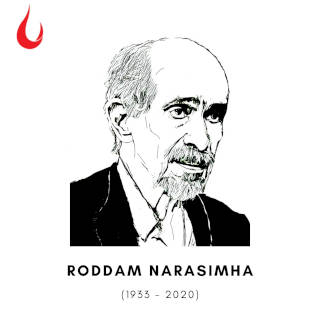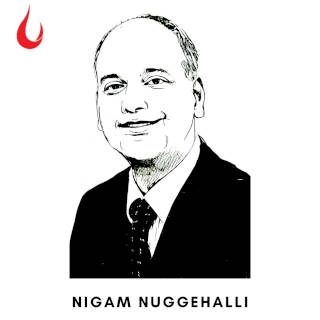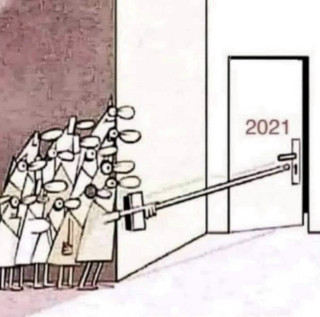[Image by Colin Behrens from Pixabay]
Good morning,
At Founding Fuel there are two things we place a premium on—reading and learning. This hypothesis has stood scrutiny over the years each of us on the team have had with some of the finest minds across the world. That is why, when we find any literature that affirms this belief, we like to amplify it. Some passages in How to Stay Sane by Phillippa Perry, the British therapist and author, does just that.
“A novel, or a book on philosophy, is going to use both sides of the brain: not only will you have feelings about what you read, but your mind will also get more of a work-out because you will make connections between what you are learning and what you already recognize.
“When I talk about the benefits of learning, sometimes people confide in me that what stops them embarking on learning something is a sense of shame that they do not know it already. Susan Jeffers wisely said ‘Feel the Fear and Do it Anyway’. I say ‘Feel the shame and learn something anyway’. No one likes to feel vulnerable but unless we learn to tolerate some emotional vulnerability we will be endangering our growth, and if we do not grow we shrink—and if we do that we jeopardize our sanity.
“Recently I was talking to a biologist about the benefits of maintaining the habit of learning. He asked me whether I was right- or left-handed. I said right. He told me that my chances of a full recovery after a stroke would be better if I was left-handed because left-handed people already have more neural connections than right-handed people. He added that if I started the habit of cleaning my teeth or working my computer mouse with my left hand I would begin to build ‘brain reserve’. If I later suffered a stroke it would put me in a better position to recover from it.
“Whatever new activity we begin to do—from left-handed teeth-brushing, to learning a new language—we will make new neural connections, which can generate greater creativity and new ideas. A new idea has been likened to a shy woodland creature. To coax the shy woodland creature from the shadows into the clearing you must not scare it. Leave a little food for it and it will come out into the clearing where you can see it better. If you treat it well it will not go bounding back into the forest.
“Ideas rarely come from doing nothing. We stimulate our brains to come up with ideas when we learn new things or when we rehearse the things we are learning.”
Have a great day!
In this issue
- Remembering R Narasimha
- Reflections on Obama
- Predicting 2021
(Note: Founding Fuel may earn commissions for purchases made through the Amazon links in this article.)
Remembering R Narasimha
By N Dayasindhu

Prof. Roddam Narasimha (RN) was a polymath—and a researcher, teacher, technology pioneer, and an institution builder par excellence. A few interesting facets that celebrate his extraordinary life:
After completing his Masters in IISc in Aeronautical Engineering, he worked on the transition from laminar to turbulent flow with Satish Dhawan. (Laminar–turbulent transition is a process in fluid dynamics.)
RN then went to Caltech to pursue his PhD. Hans Liepmann, RN's PhD advisor in Caltech, indicated that his work on jet noise was good to go as his thesis. But RN felt he had a lot more to learn and decided to take on the low-density gas dynamics problem for his PhD thesis. This was a problem that was coming to the forefront in the late 1950s when the space exploration era started. RN was a pioneer in expanding the mathematical foundation in this domain—moving away from Navier-Stokes equations (which describe the motion of viscous fluid) and using the Boltzmann equation (which describes the statistical behaviour of a thermodynamic system not in a state of equilibrium). RN was among the first to use computers in aerodynamics computation when he was a consultant for the Jet Propulsion Lab (JPL). He used the new IBM 350 computer that the JPL had to use the Boltzmann equation to study the behaviour of shock waves created during supersonic flight.
Post his PhD, RN returned to teach at IISc. He got back to work on the relaminarization of turbulent flows that has implications on how air around an aircraft's wings behave. RN gives us an easy example to understand: Our breathing is turbulent when we exercise and becomes laminar after we rest for a while!
RN led an HAL-NAL-IISc team carrying out early conceptual studies of the Indian Light Combat Aircraft Project (Tejas) in the late 1970s. Given his experience in using computers for fluid dynamics simulations, RN played an important role in the genesis of high-performance computing in India. He chaired the committee that proposed that IISc should create a super computer centre in 1984. RN was appointed the director of the National Aeronautics Laboratory (NAL) in 1984. Under his leadership, NAL designed Flosolver—India's first parallel computer.
One of RN's serious hobbies was to understand the epistemology that drove classical Indic science during its most productive age, during the 1500 years or so from Charaka to Nilakantha. He also had a life-long love for clouds and not surprisingly founded IISc's Centre for Atmospheric Sciences.
RN was first and foremost a prolific researcher, his first publication was in 1957 and he continued to publish in 2020—a span of 63 years.
Dig Deeper
- To get a glimpse of RN’s life history, please read an interesting two-part interview published in Bhavana - The Mathematics Magazine. Part 1 and Part 2.
(Dayasindhu is co-founder and CEO of itihaasa Research and Digital)
Reflections on Barack Obama
One compelling thread on Twitter we stumbled across yesterday was a thoughtful set of reflections by Nigam Nuggehalli, dean at the School of Law, BML Munjal University, after he’d read Barack Obama’s memoir. “I will leave it to book reviewers to discuss the more overarching themes of law, politics and morality to be found in his memoir,” he wrote. Addressed to students, the thread resonated with us. That is why we culled some snippets here.

“The most intriguing ideas about politics, democracy and the law are to be found outside statutes and textbooks”
Obama went to Harvard Law, famous for its work overload. But he found it enjoyable. ‘Whereas many felt burdened by the workload, for me days spent in the library…felt like an absolute luxury after three years of organizing community meetings and knocking on doors in the cold.’ Obama was comparing his law school days to his community organisation days in Chicago. Whenever you (and I) think law school is a bit too much, it will be good to remember that experiences are relative. We are living privileged lives compared to many other people in our country.
There is another lesson here; perhaps our students might benefit from a bit of work experience before they come to law school. I think any experience would do, as long as it teaches people that getting things done means working with other people in less than ideal situations. Obama went to the Copenhagen environment summit and found that the Indians and the Chinese were not willing to negotiate. At the last minute he received news that the Indian and the Chinese delegations (among others) were in a conference room by themselves.
He decided to go up to the conference room uninvited and schmooze (with) them until they agreed to some minimum environmental standards (the summit was ultimately a failure, but that’s another story). So, the President of the United States crashed a political meeting at an international summit. Sometimes, you have to play it by ear and forget about the dignity of your office or work.
Obama has a recurring dream. ‘I find myself on the streets of some unnamed city; a neighbourhood with trees, storefronts, light traffic. The day is pleasant and warm, with a soft breeze, and people out shopping or walking their dogs or coming home from work…’
‘I realise that no one recognises me. My security detail is gone. There’s nowhere I have to be. My choices have no consequence. I wander into a corner store to buy a bottle of water or iced tea, making small talk with the person behind the counter… I settle down on a nearby bench, pop open the cap on my drink, take a sip, and just watch the world passing by. I feel like I’ve won the lottery.’
I found this passage the most poignant one in the book. The most powerful person in the world wants to do nothing more than do nothing. My dear students, the glamour of a high intensity job fades away quite soon. If you don’t like the job, the glamour will not provide any motivation after a period of time.
Finally, Obama discusses Trump and his rise. ‘What I knew was that he was a spectacle, and in the United States of America in 2011, that was a form of power. Trump trafficked in a currency that, however shallow, seemed to gain more purchase with each passing day.’ Obama is absolutely right, except for one thing. A spectacle is a form of power everywhere, not just in America. Many professions including, I am afraid, the law, are in thrall of showmen. As future lawyers, be wary of showmen, for when the chips are down, their quackery will make your problems worse rather than better.
Dig Deeper
What to look for in 2021

(Via WhatsApp)
Tell us what you think and find noteworthy. Head over to our our Slack channel.
And if you missed previous editions of this newsletter, they’re all archived here.
Bookmark Founding Fuel’s special section on Thriving in Volatile Times. All our stories on how individuals and businesses are responding to the pandemic until now are posted there.
Warm regards,
Team Founding Fuel


